
Right, myth busters! Bats are a bit like spiders – you either love them or you dont. I’m definitely in the love camp but for others, the scary stories and misunderstandings about these creatures might leave you feeling a bit unsure.

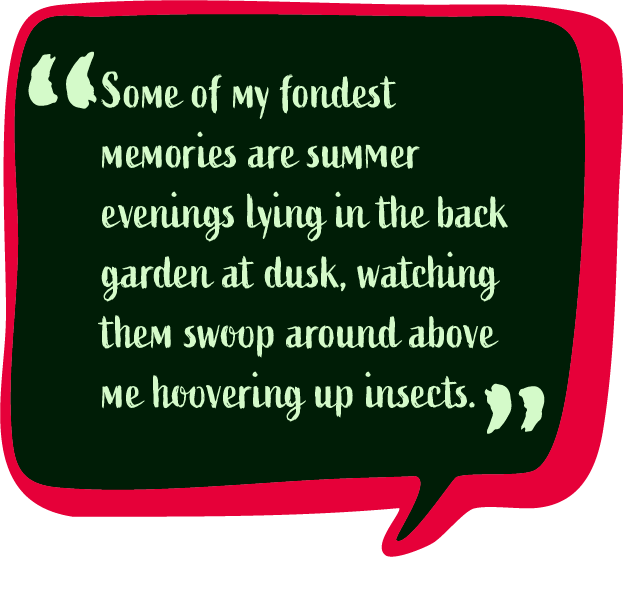
There are many bat species worldwide with varied sizes, habitats, and hunting methods. Some use echolocation while others rely on sight and smell. We’ve kept most of our focus on facts about bats you might spot here in Britain, though we’ve thrown in some fascinating facts about bats from around the world too.
Fact of myth?
Can you spot one fascinating fact about bats hiding amongst these myths?
9 must know bat facts
Once you’ve spotted the hidden fact, scroll down to discover 9 must-know facts about bats.
Bat conservation
Pick up some top tips from Bat Conservation Trust on how you can help this Halloween as our fluttering friends prepare for their winter sleep.
Bat helpline
Did you know that the Bat Conservation Trust as helpline dedicated to helping protect bats and rescue injured ones.

Click to reveal the truth
NO! They do not.
This was a story made up a long time ago to stop children from going out into the dark.
Click to reveal the truth
Yes!
Well done myth busters you’ve found the hidden fact amongst the myths.

Click to reveal the truth
No!
Good news! Bats in the UK don’t carry the same rabies that dogs can get. A very tiny number of UK bats do carry a different virus, but it’s extremely rare for people to catch it.
The virus can only spread if an infected bat bites or scratches you, or if their saliva somehow gets in your eyes, mouth or nose.
Since bats are protected animals and they actually try to stay away from humans, you’re very unlikely to ever come into contact with this virus.
Click to reveal the truth
No!
Vampire bats sneak up on live cattle stock and other domestic animals. They do not go out of their way to find human blood.

Click to reveal the truth
No!
Transylvania is in central Romania which is in Europe. Whereas Vampire bats are from Central and South America.

Click to reveal the truth
No!
Bats are not blind. They aren’t known for the best night vision, unlike some other nocturnal animals. Their night vision is often compared to humans.
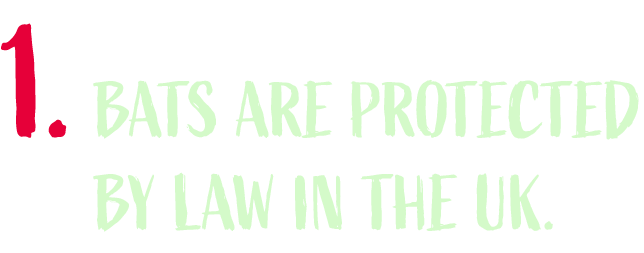
It’s against the law to harm, move or damage their homes. They are that special and important. If you do find one has taken up residence seek expert advice.

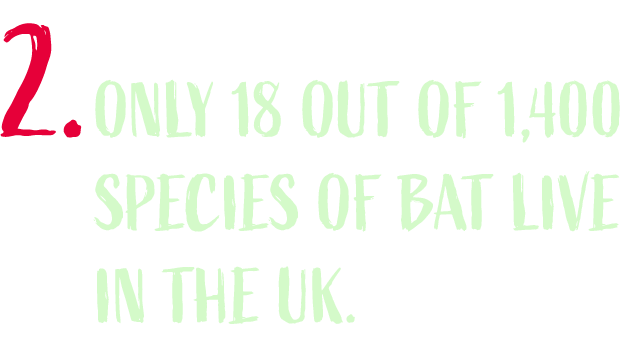
The UK’s bat populations makes up almost a third of British land mammal species.
- 17 of these species are known to breed here in the UK
- 4 of these species are listed as critically endangered or vulnerable to extinction.

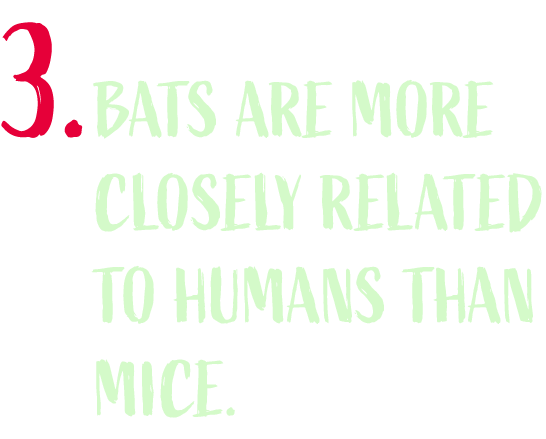
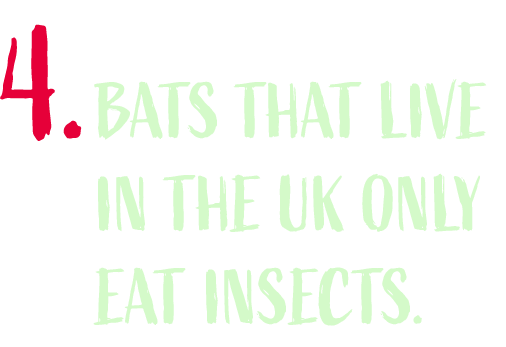
Some bats hunt using echolocation like British bats others use sense of smell and vision.
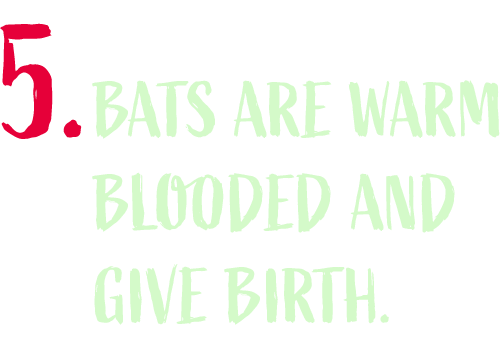
Young bats known as pups are very small (less than an inch) with thin, slightly grey fur. They stay with their mum for
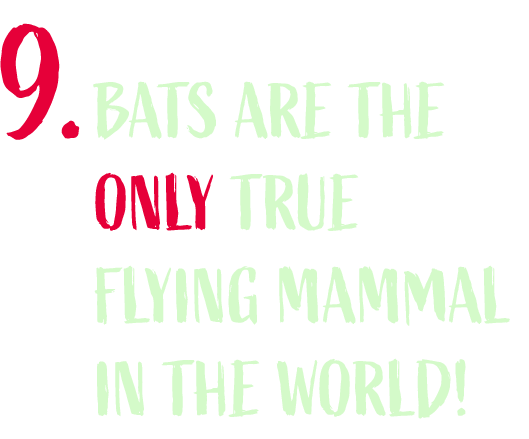
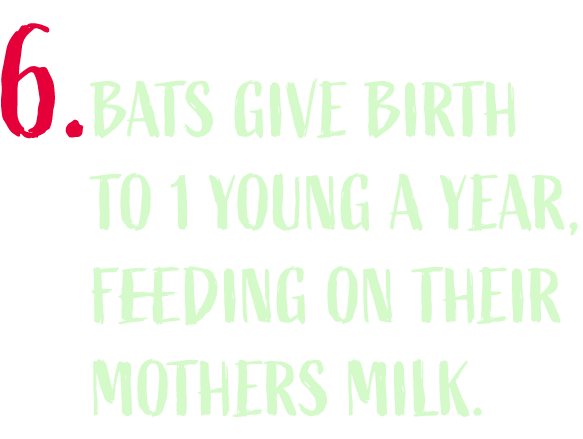
A bat pup will start to learn to fly at just 3 weeks old and by 6 weeks old they will no longer need their mothers milk.
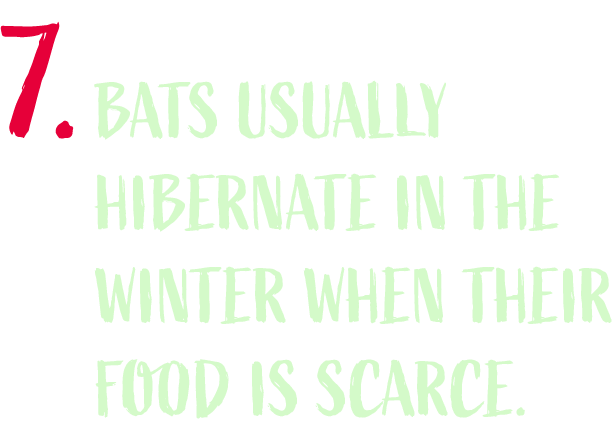
UK Bats begin to hibernate from around November time. They spend the late summer/autumn months eating lots so that they have enough fat (energy) stored to hibernate until around March.


As we’ve discovered Bats in the UK have poor night vision but they do have a superpower. Below is a video that explains what and how echolocation works.
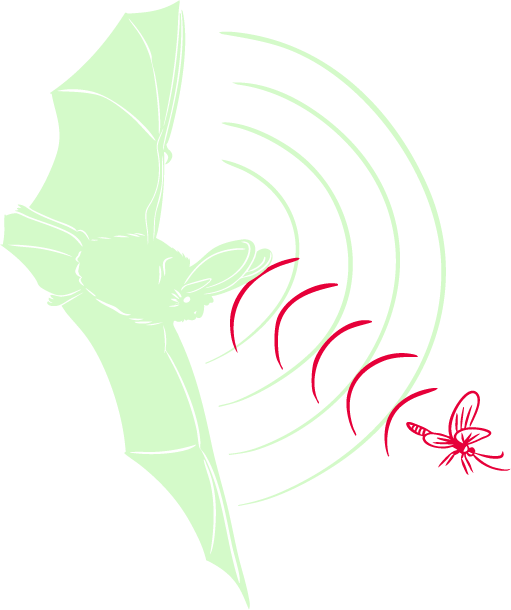

With several species of bat vulnerable to extinction. We are very fortunate in the UK to have an amazing charity called the Bat Conservation Trust who lead the way in Bat education and conservation. Below they’ve put together a video on how to protect bats this Halloween.

As part of their work the Bat Conservation Trust has a bat helpline to help you with bat concerns and rescues. They also look for volunteers to help with bat helpline, taking calls etc.
Bat Helpline 0345 1300 228
Check out these links to pages on the bat conservation trusts website for advice.



Right, myth busters! Bats are a bit like spiders – you either love them or you dont. I’m definitely in the love camp but for others, the scary stories and misunderstandings about these creatures might leave you feeling a bit unsure.
There are many bat species worldwide with varied sizes, habitats, and hunting methods. Some use echolocation while others rely on sight and smell. We’ve kept most of our focus on facts about bats you might spot here in Britain, though we’ve thrown in some fascinating facts about bats from around the world too.

Fact of myth?
Can you spot one fascinating fact about bats hiding amongst these myths?
Bat conservation
Pick up some top tips from Bat Conservation Trust on how you can help this Halloween as our fluttering friends prepare for their winter sleep.
9 must know bat facts
Once you’ve spotted the hidden fact, scroll down to discover 9 must-know facts about bats.
Bat helpline
Did you know that the Bat Conservation Trust as helpline dedicated to helping protect bats and rescue injured ones.
How do British bats hunt?
Jump to a video by Maddie Knows all about what echolocation is and how it works.

Click to reveal the truth
NO! They do not.
This was a story made up a long time ago to stop children from going out into the dark.

Click to reveal the truth
Yes!
Well done myth busters you’ve found the hidden fact amongst the myths.


Click to reveal the truth
No!
Good news! Bats in the UK don’t carry the same rabies that dogs can get. A very tiny number of UK bats do carry a different virus, but it’s extremely rare for people to catch it.
The virus can only spread if an infected bat bites or scratches you, or if their saliva somehow gets in your eyes, mouth or nose.
Since bats are protected animals and they actually try to stay away from humans, you’re very unlikely to ever come into contact with this virus.

Click to reveal the truth
No!
Vampire bats sneak up on live cattle stock and other domestic animals. They do not go out of their way to find human blood.

Click to reveal the truth
No!
Transylvania is in central Romania which is in Europe. Whereas Vampire bats are from Central and South America.

Click to reveal the truth
No!
Bats are not blind. They aren’t known for the best night vision, unlike some other nocturnal animals. Their night vision is often compared to humans.


It’s against the law to harm, move or damage their homes. They are that special and important. If you do find one has taken up residence seek expert advice.


Some bats hunt using echolocation like British bats others use sense of smell and vision.

The UK’s bat populations makes up almost a third of British land mammal species.
- 17 of these species are known to breed here in the UK
- 4 of these species are listed as critically endangered or vulnerable to extinction.


Young bats known as pups are very small (less than an inch) with thin, slightly grey fur. They stay with their mum for

UK Bats begin to hibernate from around November time. They spend the late summer/autumn months eating lots so that they have enough fat (energy) stored to hibernate until around March.

A bat pup will start to learn to fly at just 3 weeks old and by 6 weeks old they will no longer need their mothers milk.




As we’ve discovered Bats in the UK have poor night vision but they do have a superpower.
Below is a video that explains what and how echolocation works.

With several species of bat vulnerable to extinction.
We are very fortunate in
the UK to have an amazing charity called the
Bat Conservation Trust
who lead the way in bat education and conservation.
Below they’ve put together a video on how to protect bats this Halloween.

As part of their work the Bat Conservation Trust has a bat helpline to help you with bat concerns and rescues. They also look for volunteers to help with bat helpline, taking calls etc.
Check out these links to pages on the bat conservation trusts website for advice.
Bat Helpline 0345 1300 228


Bats are a bit like spiders – you either love them or you don’t. For some the scary stories and mis-information can leave you feeling a
bit unsure.

There are many bat species worldwide with varied sizes, habitats, and hunting methods.
We’ve kept most of our focus on facts that are true of bats you might spot here in the UK.

Use this section to jump to the section that interests you most.



Click to reveal the truth
NO! They do not.
This was a story made up a long time ago to stop children from going out into the dark.

Click to reveal the truth
Yes!
Well done myth busters you’ve found the hidden fact amongst the myths.

Click to reveal the truth
No!
Good news! Bats in the UK don’t carry the same rabies that dogs can get. A very tiny number of UK bats do carry a different virus, but it’s extremely rare for people to catch it.
The virus can only spread if an infected bat bites or scratches you, or if their saliva somehow gets in your eyes, mouth or nose.
Since bats are protected animals and they actually try to stay away from humans, you’re very unlikely to ever come into contact with this virus.

Click to reveal the truth
No!
Vampire bats sneak up on live cattle stock and other domestic animals. They do not go out of their way to find human blood.

Click to reveal the truth
No!
Transylvania is in central Romania which is in Europe. Whereas Vampire bats are from Central and South America.

Click to reveal the truth
No!
Bats are not blind. They aren’t known for the best night vision, unlike some other nocturnal animals. Their night vision is often compared to humans.


It’s against the law to harm, move or damage their homes. They are that special and important. If you do find one has taken up residence seek expert advice.

The UK’s bat populations makes up almost a third of British land mammal species.
- 17 of these species are known to breed here in the UK
- 4 of these species are listed as critically endangered or vulnerable.


Some bats hunt using echolocation like British bats others use sense of smell and vision.

Young bats known as pups are very small (less than an inch) with thin, slightly grey fur. They stay with their mum for

A bat pup will start to learn to fly at just 3 weeks old and by 6 weeks old they will no longer need their mothers milk.

UK Bats begin to hibernate from around November time. They spend the late summer/autumn months eating lots so that they have enough fat (energy) stored to hibernate until around March.



As we’ve discovered Bats in the UK have poor night vision but they do have a superpower.

Below is a video that explains what and how echolocation works.

With several species of bat vulnerable to extinction. We are very fortunate in the UK to have an amazing charity called the
Bat Conservation Trust
who lead the way in
bat education and conservation.
Here are a few key links you might find useful
Below the trust has put together a video on how to protect bats this Halloween.

As part of their work the Bat Conservation Trust has a bat helpline to help you with bat concerns and rescues. They also look for volunteers to help with bat helpline, taking calls etc.
Bat Helpline
0345 1300 228
Check out these links to pages on the bat conservation trusts website for advice.


